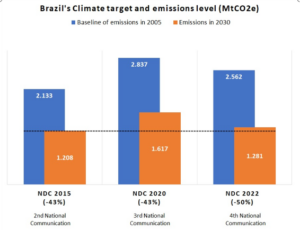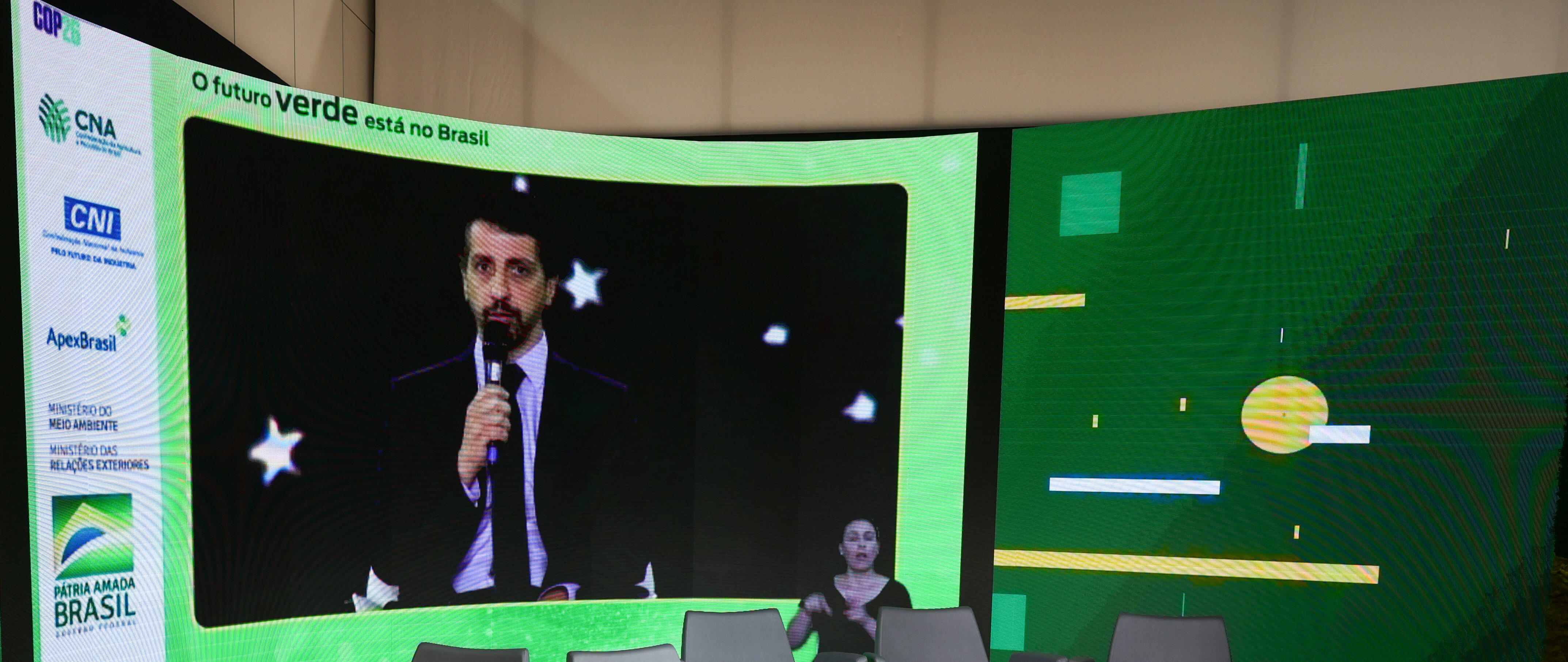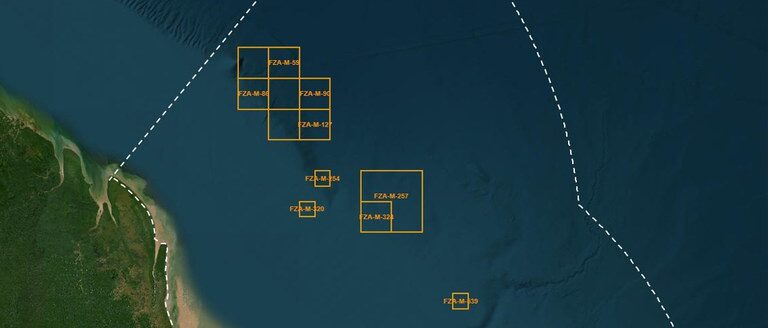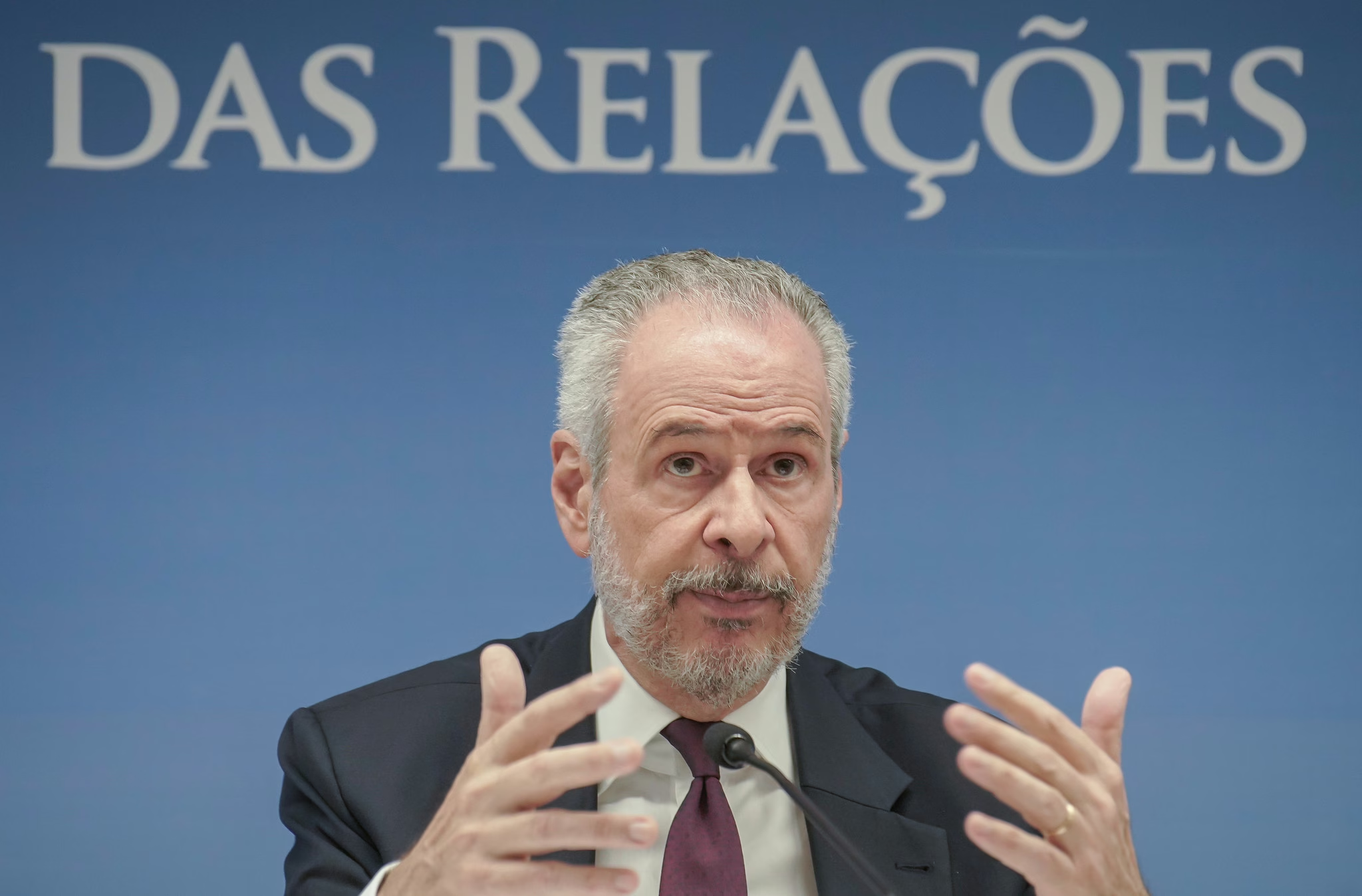PRESS RELEASE
Last Thursday (April 7), Brazil submitted the second update of its first NDC, the national target under the Paris Agreement. Although nominally increasing the percentage of emissions cuts from 43% to 50% by 2030 compared to 2005 levels, the new target is still less ambitious than the one originally submitted in 2015. Therefore, Brazil continues to violate the climate treaty, which states that new NDCs cannot reduce ambition.
The new target is a failed attempt by the Bolsonaro administration to fix the mess made in December 2020, when it presented a climate commitment that was worse than that of the first NDC, in 2015, submitted in the year when the Paris Agreement was signed. This difference became known as “carbon trick maneuver” and was challenged in the Brazilian courts by young activists, with the support of eight former ministers of the Environment.
In the original NDC, Brazil committed to reducing greenhouse gas emissions by 37% by 2025 when compared to 2005 and indicated that it could reduce them by 43% by 2030. In December 2020, the government submitted to the UN a NDC update that confirmed the indicative target. However, it used a different calculation basis, a detail that effectively changed everything.
In 2015, Brazilian absolute emissions for 2005, presented in the annex to the NDC, were calculated based on the Second National Communication, and estimated at 2,133 million tons of CO2 equivalent (MtCO2e). The 2020 NDC only indicated that it was based on the Third National Communication, in which the 2005 emissions estimates had been substantially revised upwards, to 2,837 MtCO2e. This increase in the baseline by 704 million tons of CO2 equivalent would allow Brazil to reach 2030 emitting up to 409 MtCO2e above what had been defined in the 2015 NDC (1,208 MtCO2e) while still stating that it had met the target.
The second update, which had already been announced by Environment Minister Joaquim Leite in November, during COP26 in Glasgow, made two changes to the NDC. First, it increased the target for 2030 to 50%. Second, it used the newest and most accurate Brazilian emissions inventory as a calculation basis, as per the Fourth National Communication (which estimated 2,562 MtCO2e emitted in 2005).
By applying the new 50% reduction target based on the Fourth National Communication, Brazil is expected to reach 2030 emitting 1,281 MtCO2e. That corresponds to 73 MtCO2e above the figure that had been promised in 2015. Despite having reduced the “carbon trick maneuver” by 80%, Brazil continues to tinker with its climate figures by setting a lower goal than the one set seven years ago, in direct violation of the Paris Agreement.

“This is like having credit card debt and only paying part of the bill. It’s still a step backwards, at a time when the United Nations is calling for countries to increase their ambitions. Brazil does not respond to the call and is still going backwards”, says Marcio Astrini, executive secretary of Observatório do Clima.
The government lies in the document when it states that the emission reduction target represents an “increase of 13 percentage points in relation to the previous target”, without mentioning the change in the calculation basis. It also lies by saying that Brazil has again updated its NDC to “further increase its ambition levels”.
In addition to violating the ambition clause, the NDC disregards sectoral commitments made by Brazil in Glasgow by not internalizing the methane reduction target or the commitment to zero deforestation by 2030, as promised in the Forest Declaration. Furthermore, civil society had no access whatsoever to the proposal, nor was it consulted before its drafting – in any of the update rounds.
Brazil has no implementation plan on how to deliver on its international pledges either, however fragile such pledges may currently be. Without any guidance for the economic sectors and, at the same time, promoting setbacks in areas such as deforestation and the energy sector, there are no indicators that the goals will ever be met. “Therefore, Brazil continues to be listed among the countries that have gone back on their climate promises. This is a shameful list that the Bolsonaro administration has placed the country on”, concludes Astrini.
Press information
Solange A. Barreira – Observatório do Clima
[email protected]
+55 11 98108-7272





